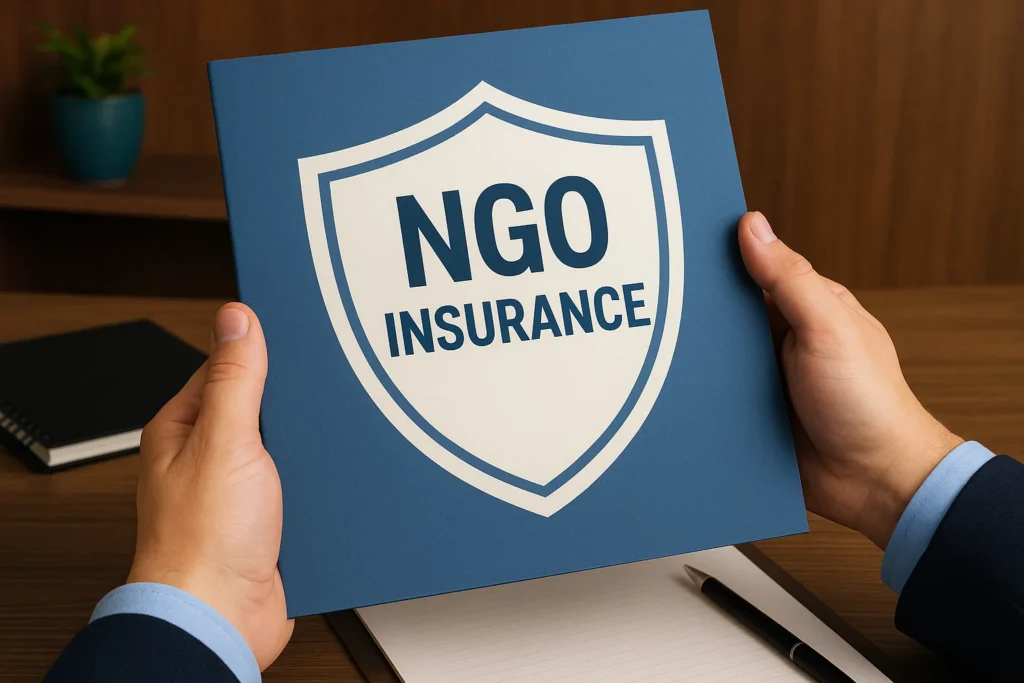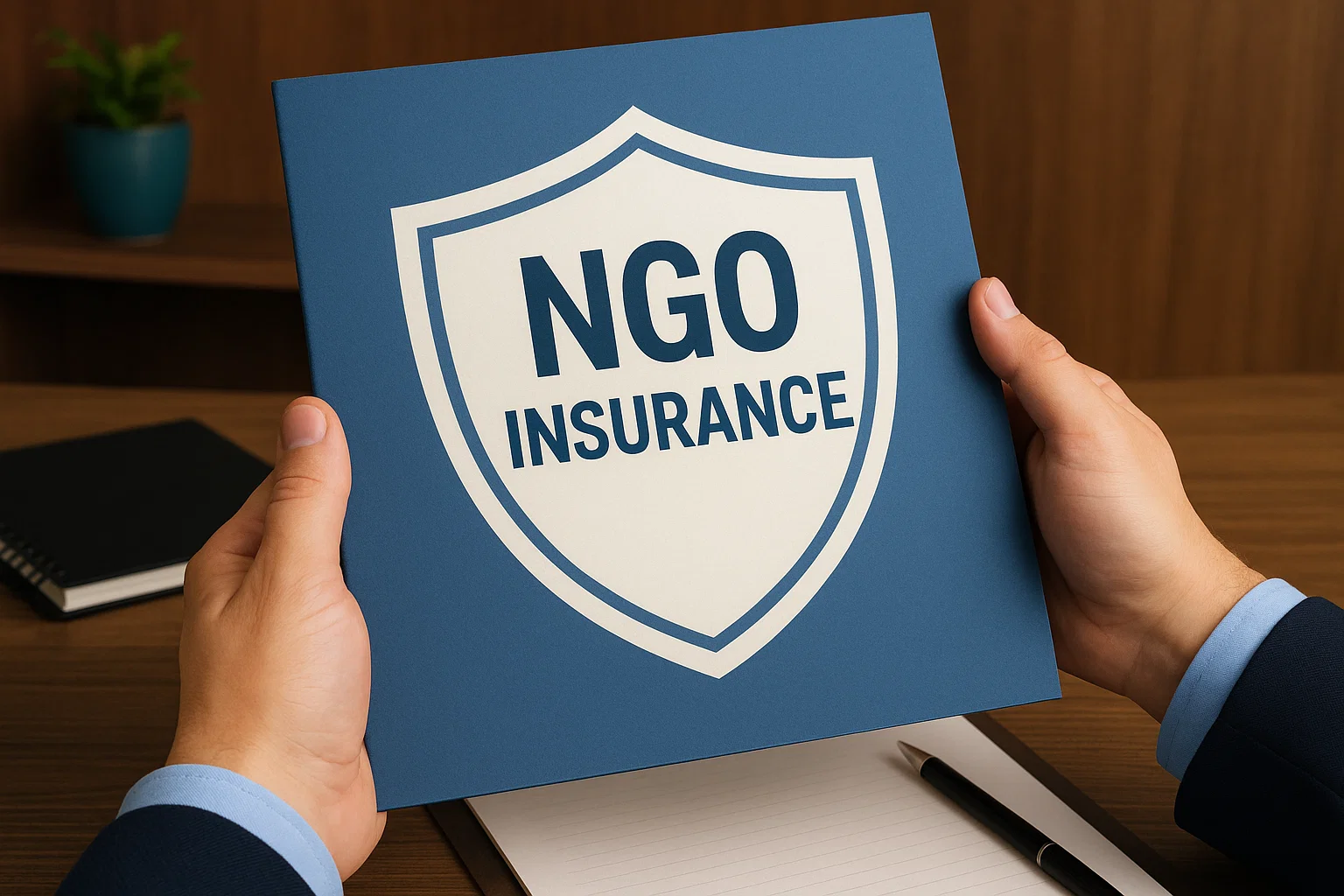
NGO Insurance Worldwide: Safeguarding Nonprofits with Global Protection and Peace of Mind
In a world where humanitarian crises, environmental emergencies, and social upheavals are increasingly common, NGOs (Non-Governmental Organizations) stand at the forefront of providing essential services and relief. These nonprofit entities, operating globally and often in high-risk zones, are exposed to a multitude of threats—ranging from legal liability and property loss to personnel injury and reputational damage. Yet, one of the most underestimated risk management tools available to NGOs is NGO Insurance.
NGO insurance is designed specifically to protect nonprofits from the operational, legal, and financial risks they face in their pursuit of good. This specialized form of coverage includes protections like general liability, directors’ and officers’ liability, employee accident and health insurance, travel insurance, and property insurance. Whether an NGO is operating in conflict zones, managing volunteer networks, or running cross-border health missions, having the right insurance coverage is essential for long-term sustainability and resilience.
This article explores the worldwide landscape of NGO insurance—how to join, who provides it, and how to apply through verified website links.
Why NGOs Need Specialized Insurance Coverage
NGOs face unique challenges that standard commercial insurance often doesn’t cover:
- Operating in conflict zones or high-risk areas
- Deploying volunteers and staff across international borders
- Transporting goods and equipment
- Managing liability risks arising from aid distribution, employment practices, and third-party interactions
- Being subject to foreign government regulations and lawsuits
Without tailored insurance coverage, an NGO might face crippling financial consequences from lawsuits, property loss, or personnel injuries.
Types of NGO Insurance Coverage
Some of the common policies available for NGOs include:
- General Liability Insurance – Covers legal claims related to bodily injuries or property damage.
- Directors and Officers (D&O) Insurance – Protects leadership from personal liability related to organizational decisions.
- Travel and Health Insurance – Ensures health and evacuation support for international staff and volunteers.
- Property and Asset Insurance – Covers physical damage to buildings, vehicles, and operational equipment.
- Professional Indemnity – For NGOs providing consulting or advisory services.
- Kidnap and Ransom Insurance – Especially for NGOs working in unstable regions.
How to Join an NGO Insurance Program: Step-by-Step Guide
Joining an NGO insurance program depends on the provider, but the general process follows these steps:
Assess Your Risks
- Identify the size, location, type of activities, and operational risks your NGO faces.
- Determine if your team includes international staff or local volunteers.
- Evaluate whether you own/rent property, vehicles, or manage high-value assets.
Choose the Right Type of Coverage
- Select coverage types based on organizational needs (liability, travel, property, etc.).
- Some providers offer bundled insurance packages designed specifically for NGOs.
Shortlist Reputable Providers
- Focus on insurers with international reach and nonprofit specialization.
- Compare quotes, customer reviews, and service terms.
Apply Online
- Visit the provider’s website.
- Fill out a quote or application form with your NGO’s information.
- Attach relevant documents like registration certificates, financials, or organizational structure.
Underwriting and Review
- Insurer may request additional documents or conduct interviews.
- Risk assessment and coverage limits will be finalized.
Accept Policy Terms and Pay Premium
- Once approved, review the terms carefully before signing.
- Payment can be done annually, biannually, or monthly based on provider options.
Top NGO Insurance Providers Worldwide (with Website Links)
Below are some leading global insurers and brokers offering NGO insurance:
Clements Worldwide
Coverage: International health, property, travel, and liability insurance tailored for NGOs and nonprofits.
Highlights:
- Works with NGOs in over 170 countries.
- Offers evacuation, kidnap & ransom, and personal accident coverage.
Website to Apply:
🌐 https://www.clements.com
AON Insurance for Nonprofits
Coverage: Property, D&O, general liability, cyber liability, and auto insurance for NGOs and charities.
Highlights:
- Customizable NGO insurance programs.
- Ideal for both large international and small community-based NGOs.
Website to Apply:
🌐 https://www.aon.com/industries/nonprofit-insurance.jsp
Integro (Now Epic Insurance Brokers)
Coverage: Risk management and insurance solutions for global NGOs, including war-zone coverage and employee insurance.
Highlights:
- Offers consultancy with legal, security, and regulatory experts.
- Highly experienced in high-risk and international contexts.
Website to Apply:
🌐 https://www.epicbrokers.com
Ecclesiastical Insurance
Coverage: Faith-based and charitable organizations’ insurance including liability, trustee indemnity, and property coverage.
Highlights:
- UK-based with international service capability.
- Offers additional risk management support for charities and NGOs.
Website to Apply:
🌐 https://www.ecclesiastical.com/charity-insurance/
Allianz Global Corporate & Specialty (AGCS)
Coverage: Custom NGO insurance policies including employee group health, liability, marine cargo, and travel insurance.
Highlights:
- Global reach and excellent financial backing.
- Multinational NGO coverage in over 200 countries.
Website to Apply:
🌐 https://www.agcs.allianz.com
World Insurance Associates
Coverage: Property, casualty, employee benefits, cyber liability, and event insurance for nonprofits and NGOs.
Highlights:
- Strong U.S. base but supports international NGOs.
- Multiple package options based on size and scope.
Website to Apply:
🌐 https://www.worldinsurance.com/nonprofit-insurance
TAI Insurance (The Asset Insurance Group)
Coverage: General liability, D&O, employee benefits, and professional indemnity.
Highlights:
- Specialist broker for NGOs and development agencies.
- Works with organizations in Africa, Latin America, and Asia.
Website to Apply:
🌐 https://www.taiinsurance.com
Key Considerations When Choosing NGO Insurance
When selecting an NGO insurance provider and package, keep in mind:
- Geographical Coverage: Ensure policies cover all countries you operate in.
- Claims Process: Look for providers with responsive and simple claims systems.
- Policy Flexibility: The ability to modify coverage as your NGO grows or shifts operations.
- Financial Strength of Insurer: Partner with providers rated “A” or higher by AM Best or Standard & Poor’s.
- Experience with NGOs: Choose providers familiar with nonprofit operations, legal exposures, and humanitarian risks.
Benefits of Having NGO Insurance
- Operational Continuity: Insurance covers financial losses that could halt NGO programs.
- Staff Confidence: Insured personnel are more secure, especially in high-risk regions.
- Donor Assurance: Many donors require proof of adequate insurance coverage.
- Legal Compliance: Coverage ensures compliance with local and international legal requirements.
- Reputational Security: Protects from reputational and financial fallout due to unforeseen incidents.
Insuring Impact, Securing Purpose
The mission of NGOs is too important to be jeopardized by unforeseen crises. As nonprofits expand their global footprint, the complexities and risks they face multiply. That’s why securing specialized NGO insurance isn’t just a financial formality—it’s a strategic necessity.
From global players like Clements Worldwide and Allianz to niche brokers like TAI Insurance, there’s a wide spectrum of providers ready to tailor solutions for NGOs of all sizes and missions. By understanding the application process, assessing organizational risks, and partnering with experienced providers, NGOs can protect their teams, missions, and impact for years to come.
Whether you’re an established international organization or a newly registered nonprofit, the time to secure your future is now—because when you protect your mission, you empower your cause.
